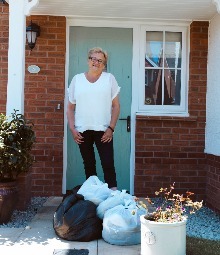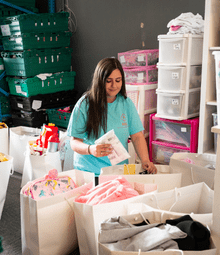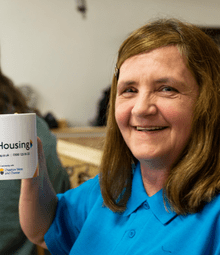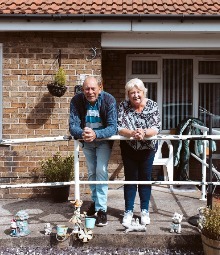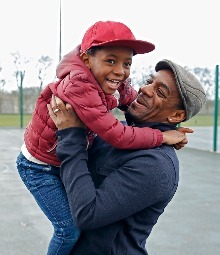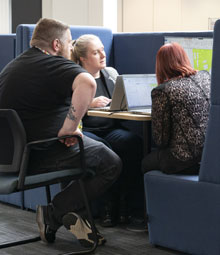Everyone should be able to feel safe and secure in and outside of their home. There are some differences between what is considered as anti-social behaviour, and what isn’t.
We’ve pulled together a list of behaviours so you have all the information you need to handle an uncomfortable situation. We are here to help so please contact us if you feel unsafe in your community. Click here to read our ASB handbook.
What are criminal offences?
Assault, abusive or violent threats, drug use or dealing, drunk or rowdy behaviour, gun and knife crime, sexual offences, verbal harassment and intimidation are all classed as anti-social behaviour and criminal offences. We encourage you to report this to the police immediately.
Once you have reported it please contact us with the incident report number and the officer’s name so we can work together to keep you safe.
What situations are classed as ASB?
What situations are not classed as ASB?
Baby Crying
We wouldn’t consider a baby crying to be anti-social behaviour but if you have concerns about the welfare of a child, please contact us or the NSPCC.
Children Playing
Play is an essential part of every child’s life and is vital for the enjoyment of childhood as well as their health, well-being and development.
Children playing in the street or communal areas – unless they are causing damage – is not anti social behaviour. If you have children yourself, read our tips for reducing noise in the home at the bottom of this page.
Dog Barking
We want everyone to enjoy living in their home and to be considerate and tolerant of others. It is natural for dogs to bark. However, if it’s happening persistently it can be annoying and upsetting. We would suggest you have a friendly word with your neighbour as they may not be aware their pet is causing a disturbance. We’ve put together some tips to help you resolve noise issues with neighbours at the bottom of this page.
If the situation doesn’t improve, we can arrange a meeting with your neighbour to try and reach agreement to resolve it.
If you feel unsafe approaching your neighbour, or you have tried and the situation has not improved, our Community Safety Team can carry out an investigation in to your concerns – so please reach out to us. If you have concerns about the welfare of a pet, you should contact the RSPCA.
Footsteps
This is not considered anti-social behaviour. You may want to have a friendly word with your neighbour as they may not be aware you can hear them. We’ve put together some tips to help you resolve problems with neighbours at the bottom of this page.
If you still feel you are being disturbed, you can report this to us. If the situation has not improved, we can arrange a meeting with your neighbour to try and reach agreement.
General living sounds
General living includes noise such as vacuuming, walking around, doors opening and closing, general conversations, or children playing and this is not anti-social behaviour.
You may want to have a friendly word with your neighbour as they may not be aware you can hear them. We’ve put together some tips to help you resolve problems with neighbours at the bottom of this page.
Loud noise and music
We want everyone to enjoy living in their home and to be considerate of others around them. A neighbour playing loud music or making noise persistently can be considered anti-social behaviour.
First of all, try to speak with neighbour – they may not be aware they are disturbing you.
If that doesn’t work and the noise continues, you can report it to us. We can arrange a meeting between you and your neighbour to try and resolve the situation. If you don’t feel safe approaching your neighbour, or you have tried and the situation has not improved, we can handle this for you.
If you need further advice on what anti-social behaviour is and how to approach uncomfortable situations, please report it by using the form below.
We are here to support you to feel safe in your home, and out in your community.







